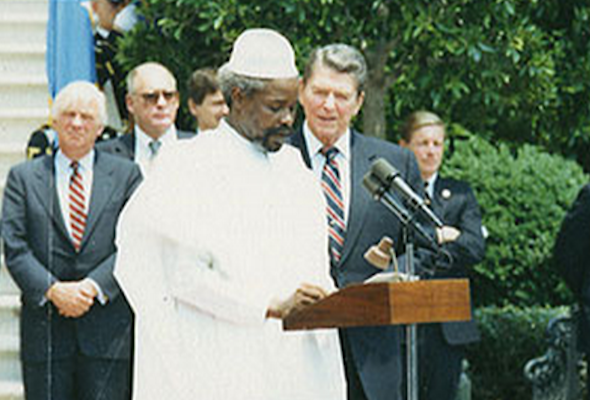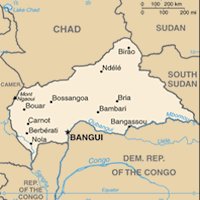Chad’s brutal ex-dictator Hissène Habré will stand trial for war crimes, torture, and crimes against humanity in a landmark trial in Senegal. This is huge news if it goes forward because the Senegal trial — undertaken with African Union backing — and will be the African continent’s first-ever use of “universal jurisdiction.”
Universal jurisdiction is a controversial doctrine that allows countries to prosecute people they arrest for significant crimes of mass violence and human rights abuses committed in other places, even without direct interests of or crimes against the prosecuting country. It has been used most heavily by Spain (full story➚).
Habré, who ruled from 1982 until the 1990 coup that brought incumbent President Idriss Déby to power, has been in Senegal since his fall from power. He was placed under house arrest in 2005 and then formally taken to jail in 2013 ahead of the now-upcoming trial. He has been sought by various jurisdictions, including Chad, for his 1980s crimes — which include hundreds if not tens of thousands of political killings and tens or hundreds of thousands of torture victims — but until now he has avoided prosecution.
Universal jurisdiction efforts against him began as far back as 2000. Senegal was initially unsure whether it could apply universal jurisdiction in its domestic courts, but the country is a firm supporter of international justice as a general principle, having been the first country to ratify the creation of the International Criminal Court.
Throughout Habré’s rule he received paramilitary assistance from the United States (via the CIA) as part of Chad’s on-again-off-again war with Libya’s Qaddafi regime. Besides his crimes again humanity, Habré was most notable on the international stage, especially in retrospect, for his pioneering use of Toyota pickup trucks with improvised gun-mounts for highly-mobile desert combat, a tactic he used against the Libyan Army’s tanks to surprisingly strong effect. This tactic’s late 1980s use in the war with Libya may well have influenced the use of pickup trucks with improvised gun mounts in Libya’s 2011 Revolution against Qaddafi, which may have then spread via Libyan fighters to ISIS (and other insurgent groups) in eastern Syria and western Iraq.
There was extensive (albeit secret) U.S. panic when Habré fell from power that CIA-delivered heavy weapons, including the same type of anti-air equipment as what they were delivering to Afghanistan at the same time, might fall into the hands of Qaddafi, who at that point had already brought down the Pan-Am flight over Lockerbie.




